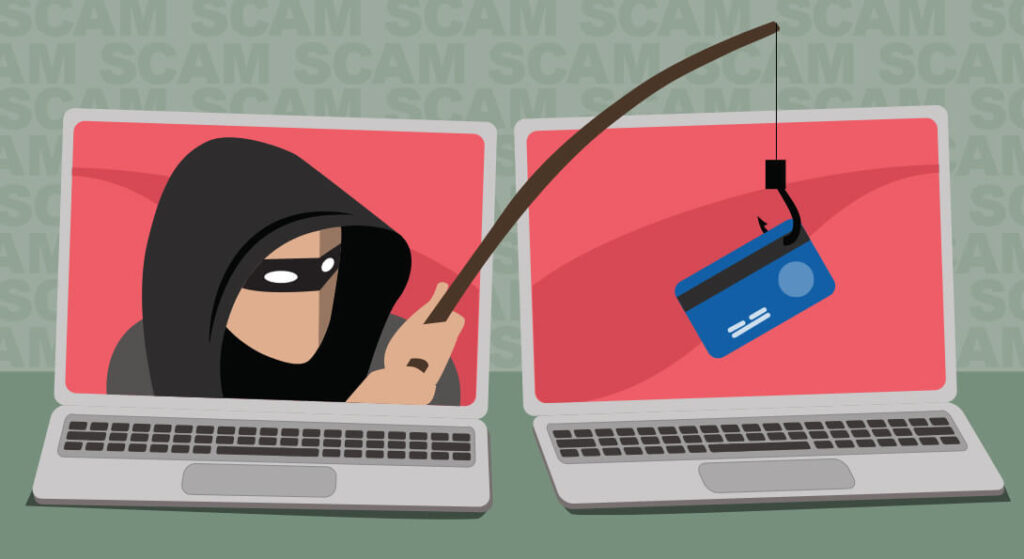In the ever-evolving landscape of cyber threats, phishing scams stand out as one of the most pervasive and insidious dangers to computer security. This blog post aims to shed light on the impact of phishing scams, exploring their tactics and consequences. Furthermore, we will delve into the protective measures offered by PC Matic against these malicious attempts.

I. The Anatomy of Phishing Scams
1.1 Definition and Types of Phishing
Phishing is a form of cyber-attack where attackers disguise themselves as trustworthy entities to deceive individuals into divulging sensitive information. Common types include spear phishing, vishing, and smishing. Understanding the nuances of these tactics is crucial for users to recognize potential threats.
1.2 The Tactics Employed by Phishers
Phishers employ various tactics, such as creating fake websites, using deceptive emails, and exploiting social engineering. By mimicking legitimate sources, they trick users into providing personal information, credentials, or financial details. As technology advances, so do the sophistication and effectiveness of phishing attacks.
II. The Impact of Phishing on Computer Security
2.1 Financial Loss and Identity Theft
One of the primary consequences of falling victim to a phishing scam is financial loss. Attackers often use stolen information to access bank accounts or make unauthorized purchases. Additionally, phishing can lead to identity theft, causing severe repercussions for individuals whose personal information falls into the wrong hands.
2.2 Compromised Personal and Corporate Data
Phishing attacks are not limited to individuals; they pose a significant threat to corporate entities. A successful phishing attempt can lead to the compromise of sensitive corporate data, intellectual property, and confidential information. The aftermath of such breaches can be devastating for businesses and their stakeholders.
III. PC Matic: Fortifying Computer Security Against Phishing Attacks
3.1 Proactive Malware Protection
PC Matic, a leading cybersecurity solution, stands out for its proactive approach to malware protection. The software employs advanced algorithms to identify and block potential threats before they can execute. By constantly updating its threat database, PC Matic ensures that users are shielded from the latest phishing techniques.
3.2 Real-Time Email Filtering
Phishing scams often find their way into users’ inboxes through deceptive emails. PC Matic’s real-time email filtering capabilities act as a robust defense against these malicious messages. By scrutinizing email content and attachments, PC Matic identifies and quarantines potential threats, preventing users from falling victim to phishing attempts.
3.3 Behavioral Analysis and Whitelisting
PC Matic goes beyond traditional signature-based detection methods. Through behavioral analysis, the software assesses the activities of files and applications, identifying anomalous behavior associated with phishing attacks. Additionally, PC Matic utilizes whitelisting to ensure that only trusted and verified applications are allowed to run, minimizing the risk of unauthorized access.
IV. User Education: A Vital Component of PC Matic’s Defense Strategy
4.1 Training and Awareness Programs
While PC Matic provides robust technological defenses, user education remains a vital aspect of comprehensive cybersecurity. PC Matic offers training and awareness programs to educate users about the latest phishing tactics and how to recognize and avoid potential threats. Informed users are better equipped to play an active role in their own cybersecurity.
FAQ ON The Impact of Phishing Scams on Computer Security and How PC Matic Protects Against Them
What is the primary impact of falling victim to a phishing scam?
Phishing scams can have severe consequences, including financial loss and identity theft. When individuals unknowingly provide sensitive information to attackers, it can lead to unauthorized access to bank accounts, fraudulent transactions, and even identity theft.
How do phishing attacks affect businesses and their data security?
Phishing attacks pose a significant threat to businesses by compromising sensitive corporate data, intellectual property, and confidential information. The aftermath of such breaches can be devastating, impacting not only the targeted organization but also its stakeholders.
How does PC Matic proactively protect against phishing attacks?
PC Matic employs advanced algorithms for proactive malware protection. By constantly updating its threat database, the software identifies and blocks potential threats before they can execute. This proactive approach ensures that users are shielded from the latest phishing techniques.
What role does real-time email filtering play in PC Matic’s defense strategy?
PC Matic’s real-time email filtering is a robust defense against phishing attempts that often use deceptive emails to target users. By scrutinizing email content and attachments, PC Matic identifies and quarantines potential threats, preventing users from falling victim to phishing attacks through their inboxes.
How does PC Matic leverage behavioral analysis and whitelisting to enhance security?
PC Matic goes beyond traditional detection methods by employing behavioral analysis to assess the activities of files and applications. This helps identify anomalous behavior associated with phishing attacks. Additionally, whitelisting ensures that only trusted and verified applications are allowed to run, minimizing the risk of unauthorized access and enhancing overall security.
